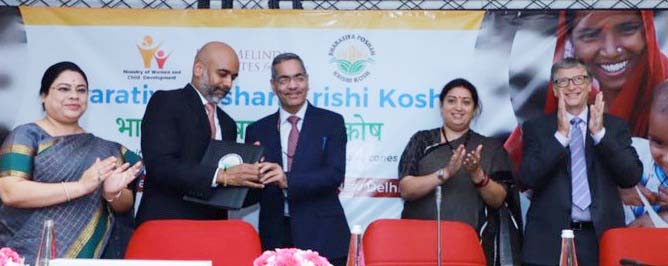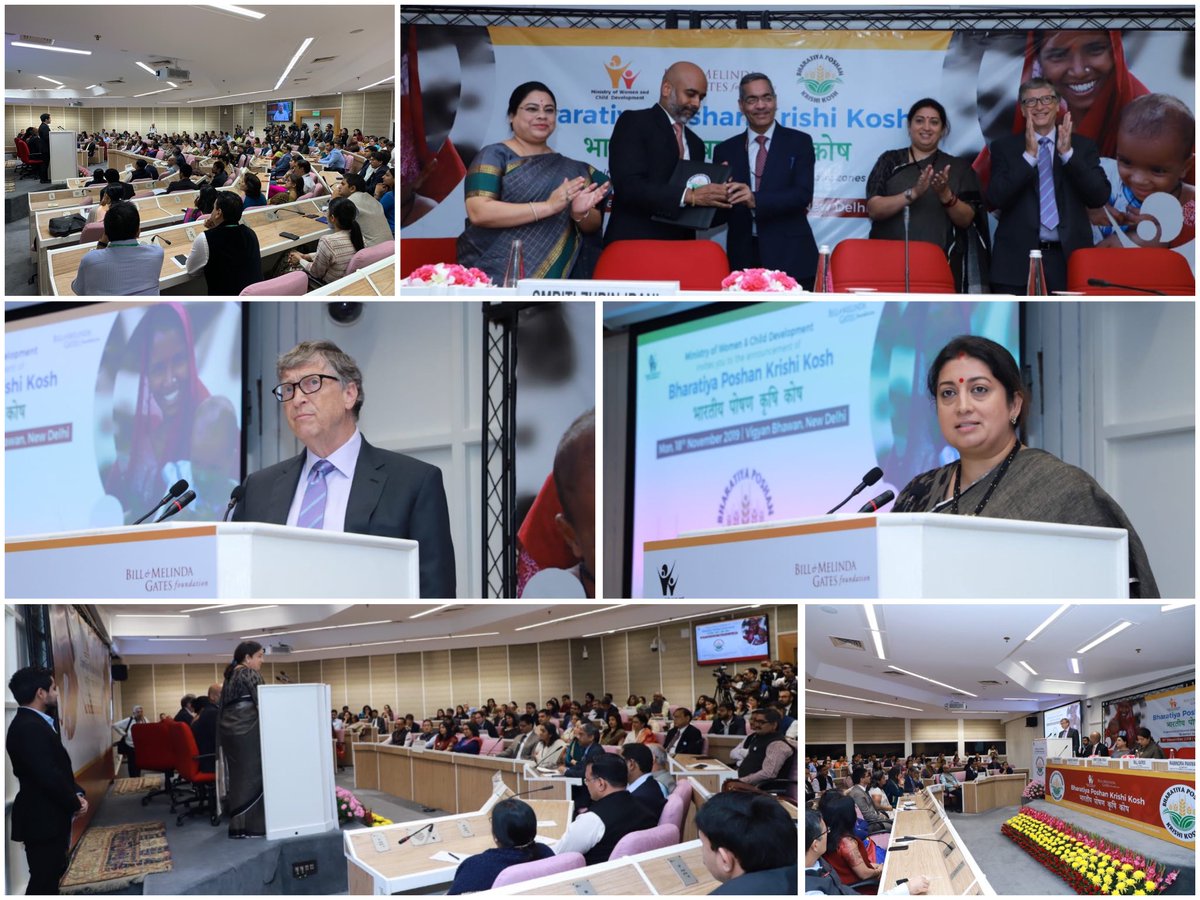Last Updated on November 18, 2019 6:23 pm by INDIAN AWAAZ

Staff Reporter / New Delhi
Union Government today launched announced Bharatiya Poshan Krishi Kosh which would be a repository of diverse crops across 128 agro-climatic zones for better nutritional outcomes.
The Kosh (fund) aims at reducing malnutrition through a multi-sectoral results-based framework, including agriculture, among women and children across the country.
A novel feature of the POSHAN Abhiyaan is its focus on social and behavioral change among parents and for improving linkages between communities and the health systems towards paving the way for a mass movement to promote a transformative change.
Speaking at a function here, Women and Child Development Minister Smriti Zubin Irani stressed the need for convergence between agriculture and nutrition to address the challenge of malnutrition. She said, government has done commendable job to address the challenges of malnutrition, availability of drinking water and sanitation. She said, with high focus on toilet construction and menstrual hygiene, government is providing health security to women and children.
In his special address, noted philanthropist and Microsoft co-founder Bill Gates said, not only India, but the whole world is facing the challenge of malnutrition. He said, in many cases, deaths of children below five is result of malnutrition. Lauding India’s efforts to tackle malnutrition, Mr Gates said, not many countries are talking about addressing this challenge. He said, National Nutrition Mission in India has brought a new energy needed to eliminate the Malnutrition.

Through a video message, Father of Green Revolution in the country, Dr M S Swaminathan underscored the five-point action plan to make India nutrition secure. The five points include, ensuring calorie-rich diet to women and children, ensuring high protein diet, eradication of hidden hunger by deficiency of micro- nutrients, ensuring clean drinking water supply and spreading nutrition literacy across the country.
In consultation with Ministry of WCD and Bill & Melinda Gates Foundation, the project team will select around 12 high focus states which are representative of the geographical, social, economic, cultural and structural diversities of India. In each of the states or group of states the team will identify a local partner organization which has relevant work experience in Social and Behavior Change Communication (SBCC) and nutrition for developing the food atlas.
